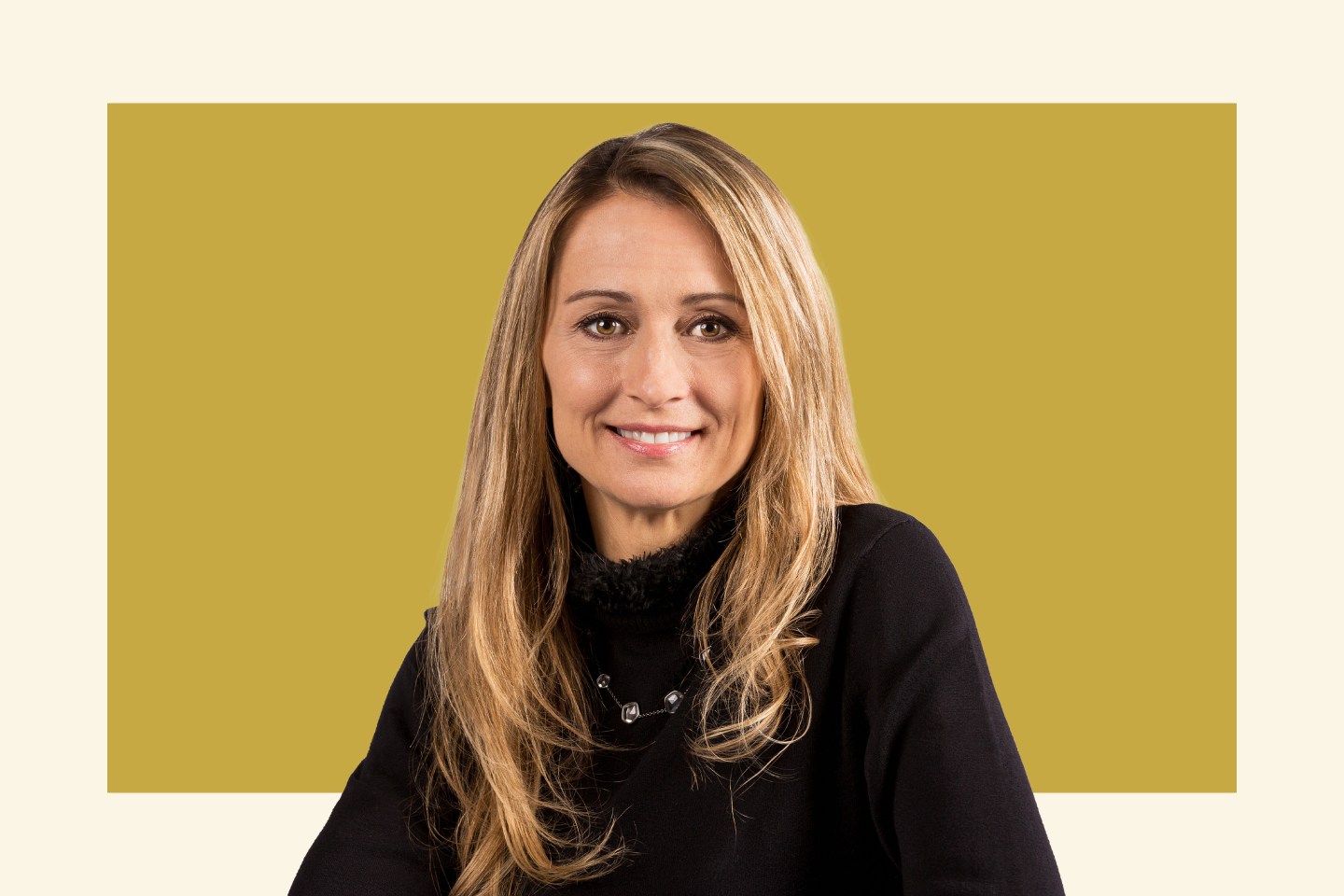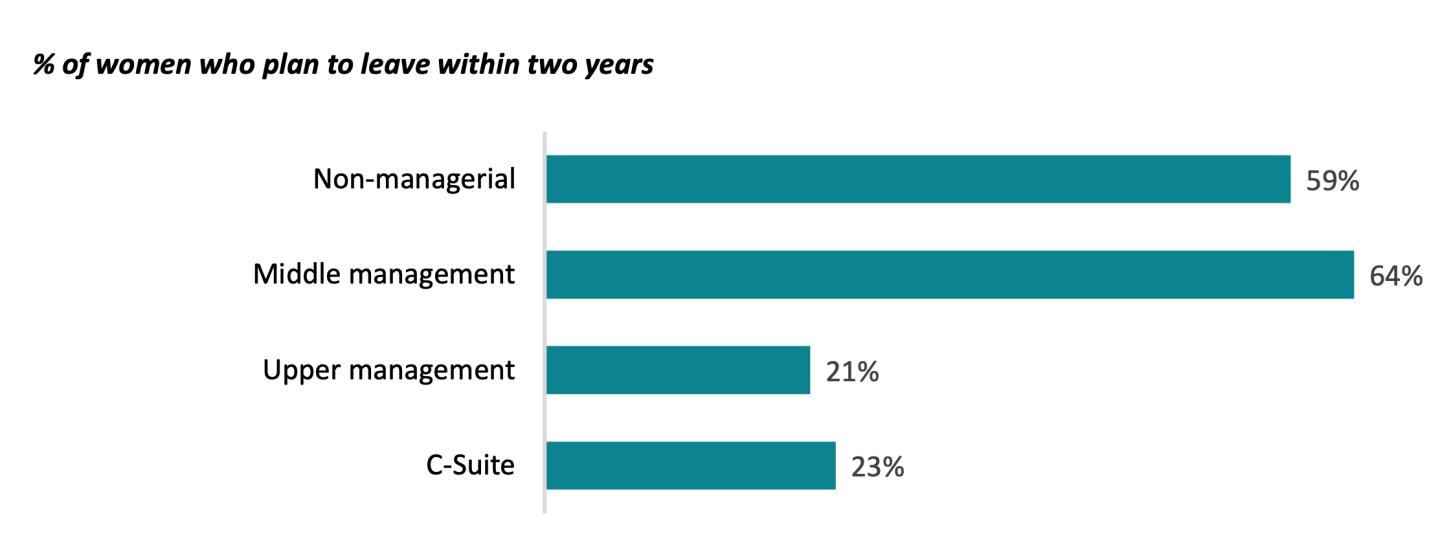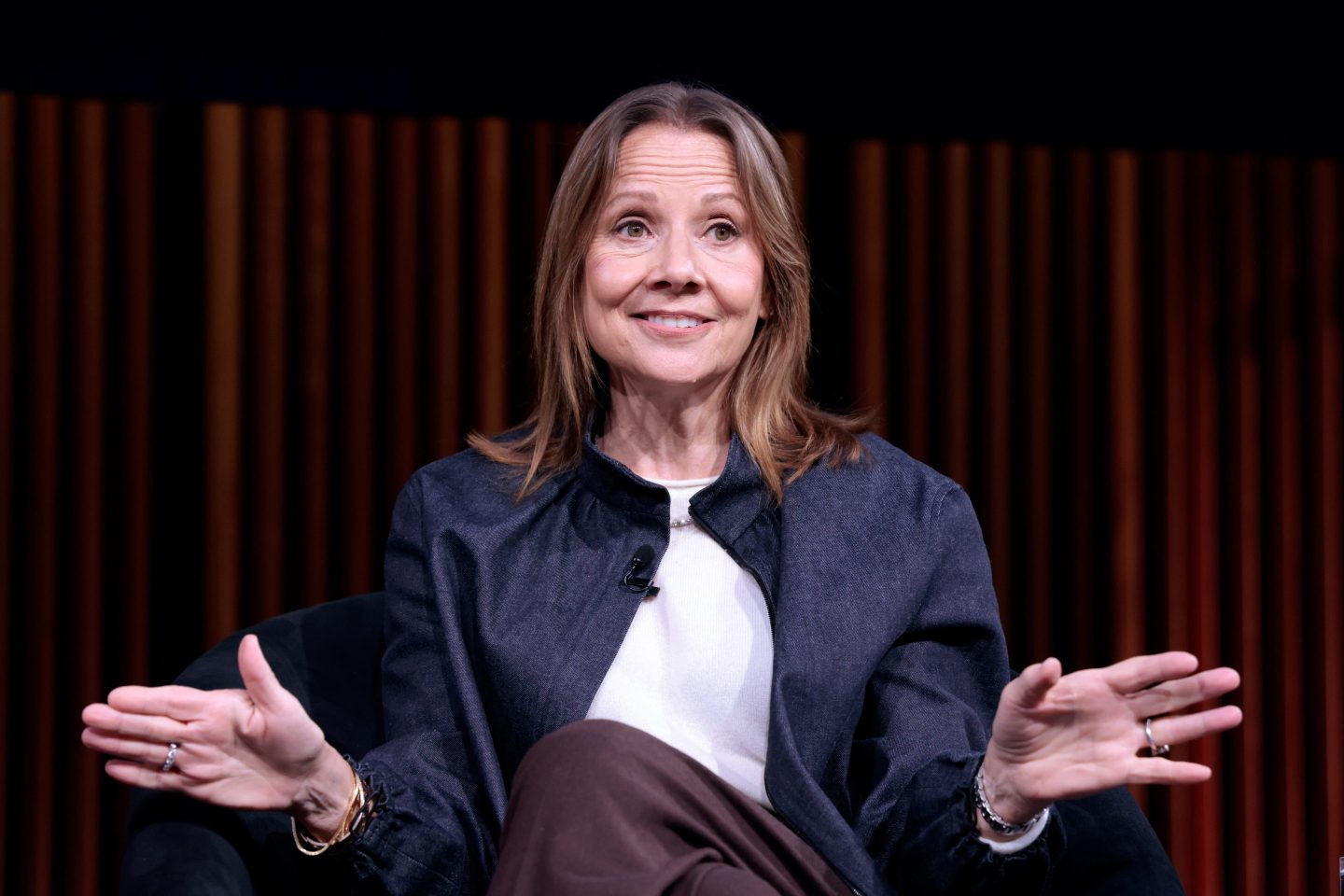Good morning,
As the war for talent continues, keeping employees at your company is not just about salary increases. Culture is a massive factor. Nvidia is a company that is listening to employees to meet their needs.
The tech company and maker of graphics processing units jumped into the top 10 of Fortune’s 100 Best Companies to Work For list this year, landing at no. 5. A few ideas the company enacted? CEO Jensen Huang gave employees the week of Christmas off to recharge. This year employees will get two prescheduled Free Days off work per quarter (in addition to federal holidays and unlimited vacation days). And, there’s a generous employee stock purchase program.
To get the inside scoop on how Nvidia is keeping employees happy, I had a chat with EVP and CFO Colette Kress. She joined the company in 2013, previously SVP and CFO at Cisco’s business technology and operations finance organization. Kress also spent 13 years at Microsoft, including four years as CFO of the server and tools division. And before that, she worked at Texas Instruments in various finance positions.

Kress shared her thoughts on talent management, learning opportunities, and what’s helping the company attract and keep employees. Since she has vast experience in the tech space, I also asked for her thoughts on the hot topic of digital transformation.
Q. Nvidia provides upskilling opportunities for employees. But what is it about the learning environment that makes it unique?
Kress: The work that we do here at Nvidia is some of the most advanced work in microprocessors, chip design, and, really, data center computing design for the future. A big part of the education [our engineers] receive every day is about the future technology. It’s not, ‘Hey, this technology has been around for 20 years, let me teach you about it.’ We’re here to teach them about where we think the future is going. And that’s honestly what excites so many of the employees. They’re working on self-driving cars and things in A.I. you never thought would be real, and also learning new ways to build buildings. In their day-to-day work, they have opportunities to learn.
Q. What has been a driving factor in attracting and retaining talent?
Kress: Some of the things learned since childhood is to surround yourself with people that you can learn from; people that can help lead. And honestly, the employees that come in, that’s exactly what they are doing. They are choosing Nvidia for the talent, and the products that they’re going to work on. When we start reading our email in the morning, we’re buzzing— ‘Here we go! I’m learning something every moment.’ That learning opportunity is built into the culture.
Q. As CFO, what’s your role in facilitating this culture?
Kress: As part of the executive staff, one of the first things that you learn is the importance of both being an approachable leader and being able to work with all levels within the organization. So, the best thing that we can do is to say ‘everybody is valuable to us.’ We are a very horizontal company, meaning—if you are the person in charge of the project, and you are the most knowledgeable about it, let’s hear from you, regardless of your title. We continue to try and work in an environment where everyone has that opportunity to lead. As leaders, we want to drive an environment of intellectual honesty, doing our best, promoting agility and removing any type of bureaucracy in the company. We love to have the ability to say, if something pops up, ‘We should really be working on this.’ And we will move on a dime.
A humble aspect of the company allows us all to be working together—myself as a leader, and a person right out of college. I feel we’re all the same. But each and every single one of us is important in terms of moving us forward.
Q. You’re a CFO at a time when there’s a big focus on digital transformation and data. How has your career of working at major tech companies prepared you for this moment?
Kress: I think my career background did serve me well at Nvidia. When I started at Nvidia, it was the smallest company that I’d ever worked for. It’s gotten quite large, but the focus is on how do you think about the future and make sure we’re ready for it to scale? Some of the techniques and processes have to be transformed over time as the company scales. How do we digitize manual processes? Our fast growth rate has put that front and center for us. Particularly, in my role leading finance, and the sister and brother organizations around me, I’m looking to them to say, ‘Hey, we need to revise a process, how the functions work together, to create digital solutions.’
When looking back at my career of 30-plus years, what’s fascinating now is there are so many different ways to do things that never existed. Even at some of the largest companies that I’ve worked at in the past. We are engaged in some of our biggest work to date as a company in terms of digital transformation, updating processes and systems from finance to HR to operations to sales to IT. Looking at some of the things that we’ve built for customers, and then putting that into use within our company.
Q. You have vast experience as a CFO. Did you always want to pursue this path?
Kress: No, actually. I think honestly, throughout my career, I was just always fascinated by somebody else’s role. And sometimes that was my boss’ role. So, it worked more in that manner than waking up as a child and saying, ‘I want to be a CFO.’ I just get excited about learning new things.
Have a good weekend. See you on Monday
Sheryl Estrada
sheryl.estrada@fortune.com
Big deal
Deloitte's Women@Work 2022: A Global Outlook examines how women’s experiences in the workplace impact their engagement and career progression. The research shows a modest improvement in women’s work/life balance from last year's survey. But lack of opportunities to advance in the workplace and burnout are top reasons why women are eyeing the door. One in 10 of the women surveyed said they’re actively looking for a new role. And more than half of women plan to leave their employer within two years. This is most pronounced for women in middle-management (64%) and non-managerial roles (59%). However, just 10% of women plan to stay with their current employer for more than five years. The findings are based on a survey of 5,000 women across 10 countries and sectors.

Going deeper
In case you missed it, here’s what was featured in CFO Daily this week:
Young Black investors are betting heavily on crypto, worrying some advisors
Should bonuses be linked to ESG goals? Mastercard says yes
Is your company’s digital transformation hitting roadblocks? You’re not alone
Leaderboard
Some notable moves this week:
Marje Armstrong was named CFO at E2open Parent Holdings, Inc. (NYSE: ETWO), a network-based provider of a cloud-based, supply chain management platform, effective May 16. She will replace Jarett Janik, who previously announced his retirement. Armstrong currently serves as VP of finance at Dropbox, Inc. Previously she was head of investor relations, FP&A, corporate development and commercial finance at Afiniti Ltd. Prior to Afiniti, she had roles at Morgan Stanley, Inc. and Goldman Sachs.
Julie Gao was named CFO at ByteDance (owned by TikTok). Gao is reported to join ByteDance in May. She is currently a Hong Kong-based capital markets attorney at law firm Skadden. Shou Zi Chew, ByteDance’s former CFO who joined the company in March 2021, stepped down in November from the CFO role to focus on being TikTok’s CEO.
Mor Lakritz was named CFO at SafeBreach, a breach and attack simulation company. Lakritz has 20 years of professional finance leadership experience. She most recently served as VP, finance at Exabeam and was responsible for all financial, accounting operations and facilities.
Hiroshi Okamoto was named CFO of SmartRent, Inc. (NYSE: SMRT), a provider of smart home and smart building automation, effective May 9. Okamoto joins SmartRent from Kinkisharyo International, LLC, where he served as CFO since 2017. Previously, he served as managing director of Touchstone Capital Group. He has also been an entrepreneur, investor and advisor, having founded and sold two startups to publicly traded companies.
Annie Pham was named CFO at authID.ai (Nasdaq: AUID), a provider of mobile, biometric identity authentication solutions, effective in June, following the planned retirement of Stuart Stoller. Pham most recently served as VP and chief accounting officer at SonicWall, Inc. She previously served as VP of finance at Applied Micro Circuits Corporation.
Ana Schrank was named the first CFO at Truepill, the digital health platform. Schrank joins Truepill after serving as CFO at Collective Health, where she led all finance, strategy, and analytics functions. Prior to Collective Health, she spent 23 years at McKesson Corporation, where she served in positions such as CFO of McKesson Connected Care & Analytics, chief audit executive, and VP of investor relations.
Kavita Suthar will step down from her role as CFO at Redbox (Nasdaq: RDBX), an entertainment company, effective May 16 to spend more time with her family, according to the company. She joined Redbox in 2015, became CFO in 2020. Mitchell Cohen, who has served as COO and CFO at several public and private companies, will serve as interim CFO.
Overheard
"Sure, a recession is on the way. I don't know when. Nobody knows when. Inflation will go up at some point [and] down at some point."
—Sallie Krawcheck, Wall Street veteran and the co-founder and CEO Ellevest, an investing platform for women, as reported by Yahoo Finance.
This is the web version of CFO Daily, a newsletter on the trends and individuals shaping corporate finance. Sign up to get it delivered free to your inbox.












